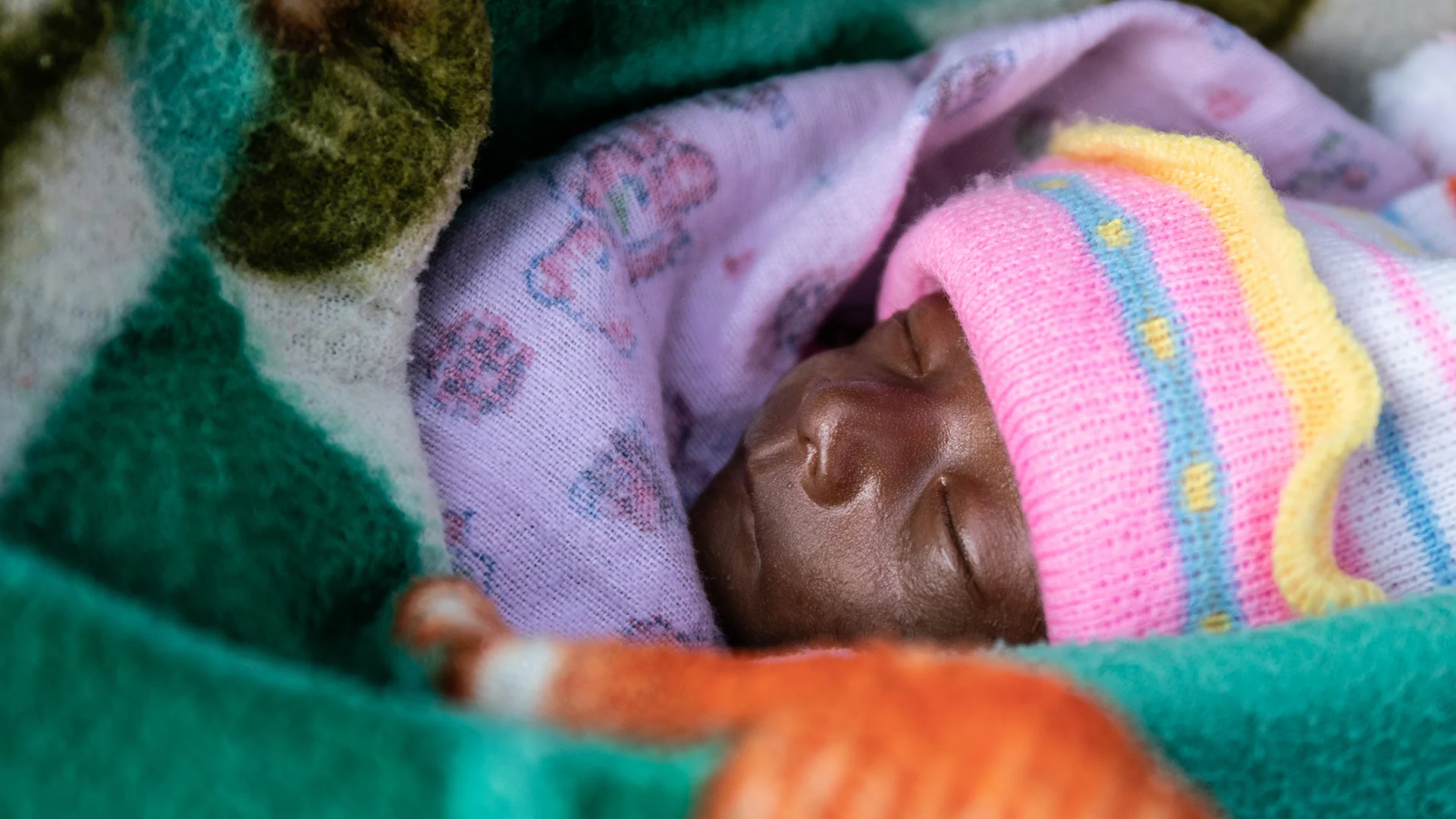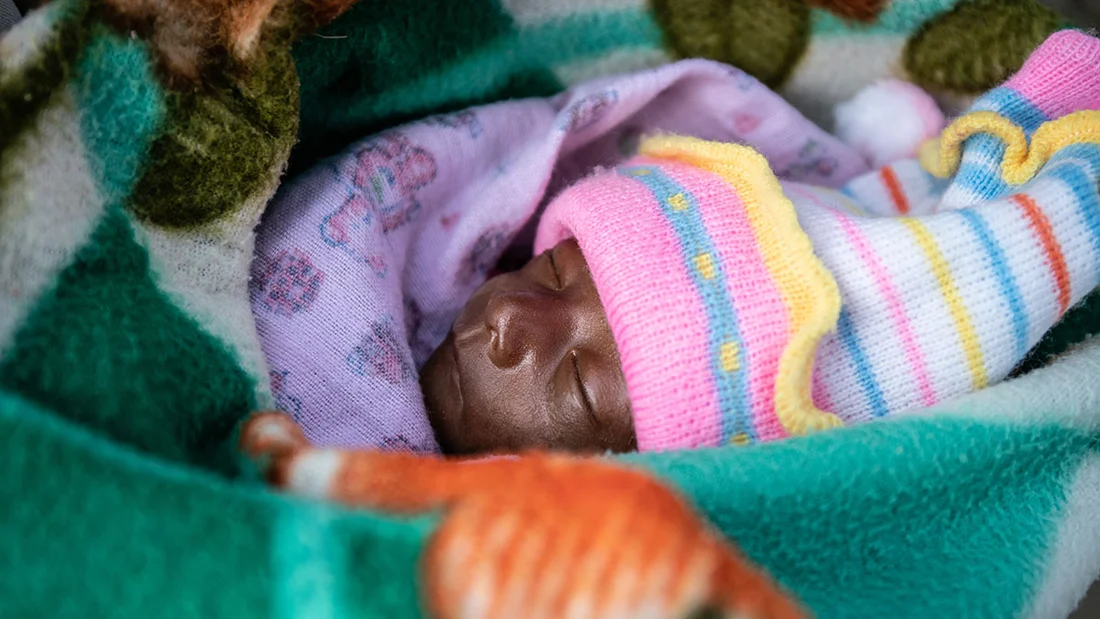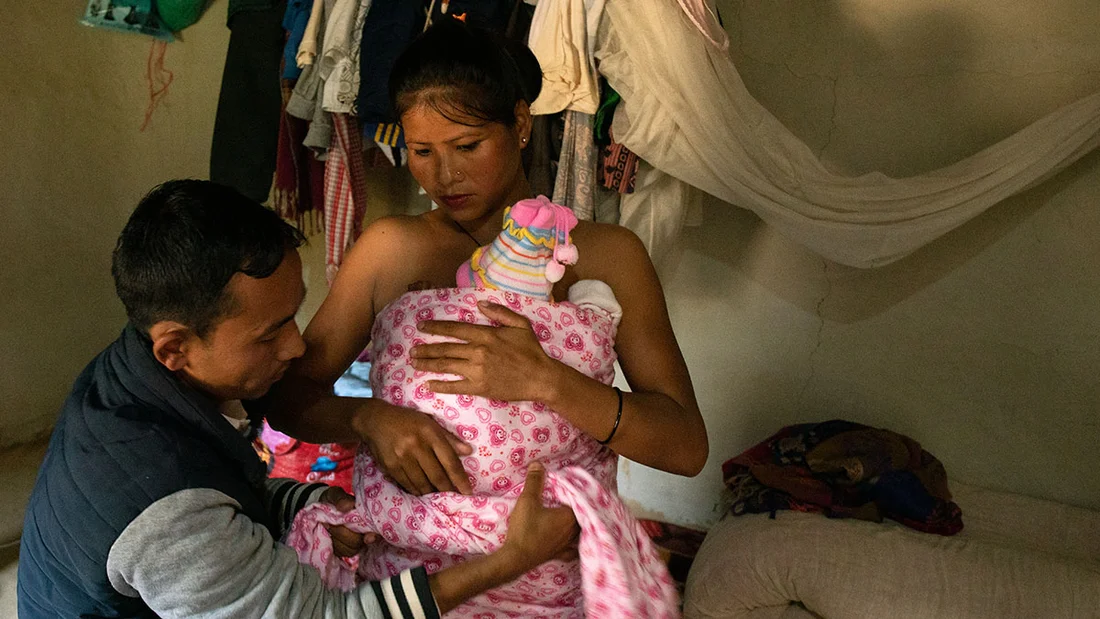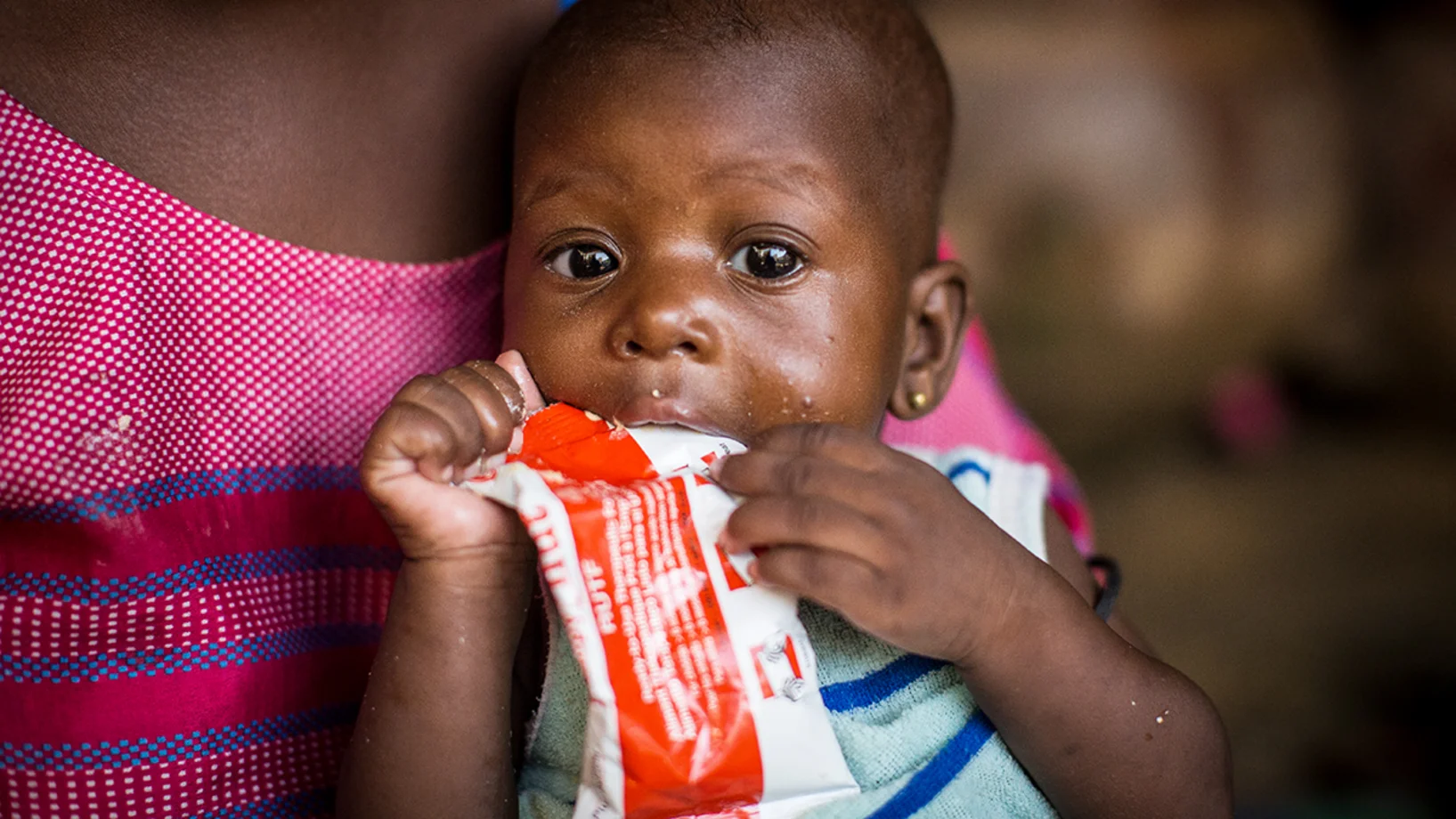In Nepal, 10,400 babies die each year due to being born underweight. Early and continuous skin-to-skin contact can massively improve their chances of survival, which is why UNICEF is working to introduce the Kangaroo Mother Care (KMC) approach to disadvantaged regions.
The situation
Babies born prematurely or underweight are around 10 times more likely to die than babies born after 37 weeks of pregnancy and at a healthy weight. Premature and low birth weight babies are more prone to complications such as hypothermia, respiratory distress syndrome and brain hemorrhage. In Nepal, however, there are often no incubators or other treatment methods available.
UNICEF therefore advocates a method called Kangaroo Mother Care (KMC), which reduces the risk of health complications and death in babies weighing less than 2,500 grams. KMC promotes early and continuous skin-to-skin contact with the parents, which helps babies, particularly those born prematurely or underweight, to regulate their own body temperature, strengthening their resistance to infections and diseases. This form of close contact is a simple and cost-effective alternative to expensive and, for many parents, inaccessible methods for treating premature babies.
What UNICEF has achieved thanks to your help
From July 2020 to June 2024, UNICEF Switzerland and Liechtenstein supported the program in Nepal to improve care for premature babies and those with a low birth weight. Thanks to support from our donors, important progress has been made:
- New guidelines: The introduction of national KMC guidelines has helped to standardize and improve care for premature babies and infants with a low birth weight across the country.
- Capacity building: 159 health professionals attended training courses for KMC; 92 people received training on caring for ill premature infants; 1,225 people gained knowledge and skills in premature baby care; 276 people received advanced training on the safe use of oxygen equipment in clinics.
- Improvements to infrastructure: UNICEF set up KMC units in 14 health facilities and equipped them with chairs, beds and other important supplies. It also supported 19 birthing centers in remote regions.
- Pilot programs in communities: Innovative technologies like BEMPU temperature monitoring bracelets helped to reduce the risks of hypothermia in newborns.
- Raising awareness: Communities and local stakeholders were given information on the importance of KMC, which led to a rise in demand for services. More than 6.2 million people were reached through social media campaigns.
Future plans
UNICEF has planned the following measures to secure and build on this progress:
- Expansion of KMC services: Setting up additional KMC units in rural and remote areas and providing the training and equipment to run them.
- Digital monitoring systems: Introducing digital systems to improve the monitoring of aftercare for mothers and infants after they leave the hospital.
- Community involvement: Raising awareness about KMC through innovative approaches such as the involvement of volunteers and psychosocial counselors, especially in marginalized communities.
- Promoting quality and continuity: Sustainable improvements through further development of national health guidelines and closer cooperation with local governments.
UNICEF is taking these steps to improve the long-term survival chances of newborns in Nepal.





